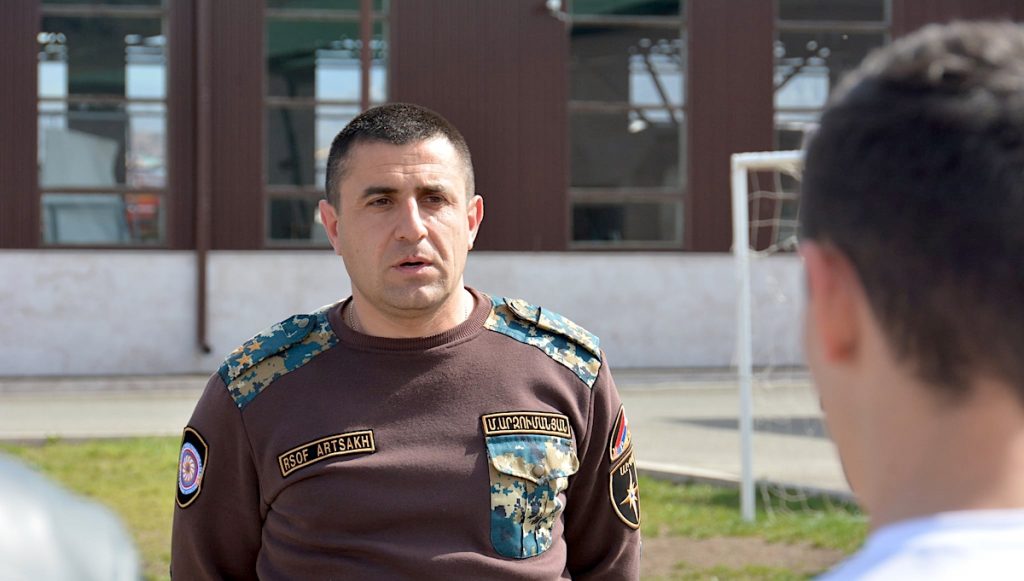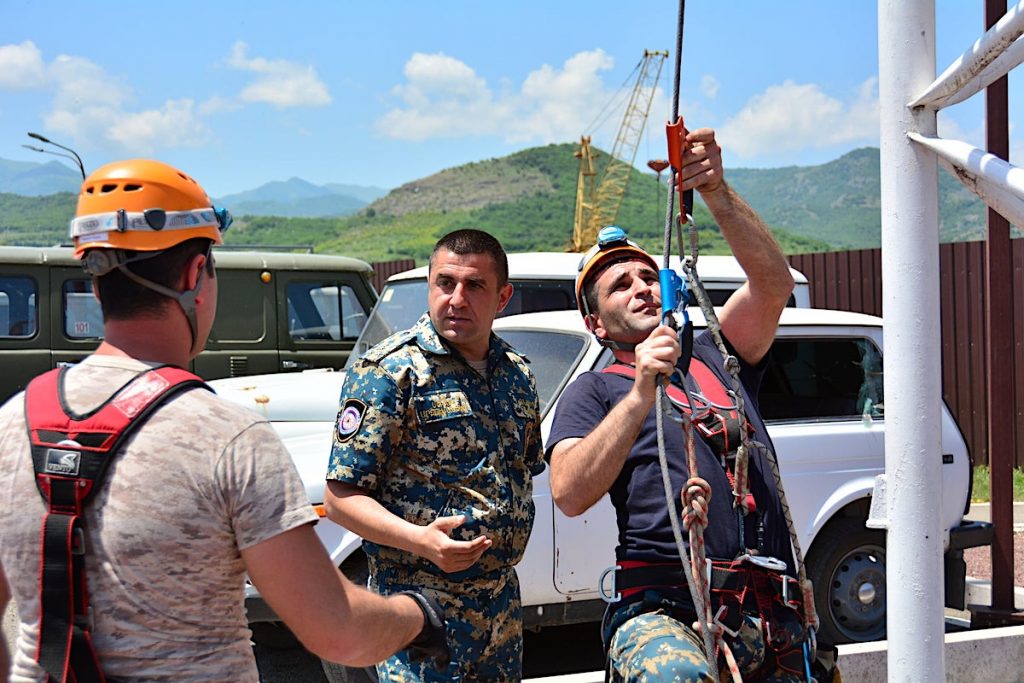Their war is not over: they save, not kill
Colonel Mekhak Arzumanyan, Head of the Emergency Situations Service of the unrecognized Nagorno-Karabakh Republic, told his stories to the “Trajectories” project. He is one of the rescuers who, since November 13, 2020, have been participating in the search for the bodies of servicemen who died in the second Karabakh war.
Mekhak Arzumanyan is one of the very few people from the Armenian side of the Armenian-Azerbaijani conflict who communicate with Azerbaijanis every day.

I met with the colonel in Stepanakert (Khankendi), in his office. You can say that I was lucky because before me he did not give interviews at all. Arzumanyan first spoke to me about the war, search operations, and how he feels.
Every day, the colonel and his people go to the territories controlled by Azerbaijan, and often they do not even know whether they will return or not.
“There are young Turks (Armenians often call Azerbaijanis“ Turks ”), those who saw Armenians for the first time in their lives. They probably did not participate in the war, maybe they worked in the rear, and suddenly they begin to harm us, interfere with us”.
When I asked what he meant, Colonel Mekhak Arzumanyan, head of the State Emergency Service of the Ministry of Internal Affairs of Artsakh (Nagorno-Karabakh) said that these are cases when young soldiers are trying to insult, offend and humiliate them.
But where there is a soldier who does evil, there will also be a commander who does good, says Mekhak and explains that the officers are pulling back these guys, ordering them to leave.
And this truth is the other side of the evil. This is the truth that both sides refuse to see.
“Azerbaijani side contributes to the search of the bodies of [Armenian] victims of the war and it is great. There were Azerbaijanis who voluntarily took us to those areas where the bodies of our guys were located. Without their help, I would not have been able to return their remains”, says the colonel.
During our conversation, the colonel held a pen, the lid of which closed with a click. The conversation was interrupted by long pauses, during which only the clicking was heard when he opened or closed the lid. This sound explains a lot. It’s not easy for the colonel to speak.
Before answering some questions, Arzumanyan was silent for a long time, and you could only hear the sound of a fountain pen cap followed by the sentences that he started and could not finish.

Nowadays, Arzumanyan has to solve difficult problems alone during negotiations with the Azerbaijani military. Recently, the Azerbaijani side, without any reason and explanation, prohibited the conduct of search operations, the colonel says, and he himself tries to explain this.
“There were days when we got to the place, but we were not allowed to go further without observing the preliminary agreement. There were parents [of the missing] who did everything to participate in the search with us. Psychologically, this is even more difficult. I can never predict how the parent will behave and how the Azerbaijani side will react to it”.
Sometimes colonel goes to the places where he grew up and lived before the war. I ask, what does he feel there?
“The word ‘indifference’ is not appropriate; it would be more accurate to say “composure”. We had the most precious thing – the lives that we lost, and we have the most precious thing – the lives that we have lived. Nothing else matters. As for how I felt, let’s not talk about it”.
And the room becomes silent again.
We don’t talk about feelings anymore. I would like to talk about the future, about the future that the colonel would like to see.
Then I break the silence. I want to know if he thinks the war is over?
Once again, I hear the clicks of a fountain pen. After a few seconds, the colonel says:
“If you don’t have faith, you shouldn’t stay here. And if we do not stay here, then we will not have a homeland. And who are we without a homeland? Living anywhere else is not an alternative”.
This alternative is not seen on the Azerbaijani side of the Armenian-Azerbaijani conflict either. But people get the opportunity to live in their homeland either from one side or the other.
I ask again: does it mean that the alternative to war is life?
He says the war is not over for him and his colleagues. It will end when they get all the information about all those missing when the remains of all the dead are found and all the captives are returned.
Colonel Arzumanyan and his team are one of the few whose war is not over yet, but they save, not kill.
Trajectories is a media project that tells stories of people whose lives have been impacted by conflicts in the South Caucasus. We work with authors and editors from across the South Caucasus and do not support any one side in any conflict. The publications on this page are solely the responsibility of the authors. In the majority of cases, toponyms are those used in the author’s society. The project is implemented by GoGroup Media and International Alert and is funded by the European Union




















